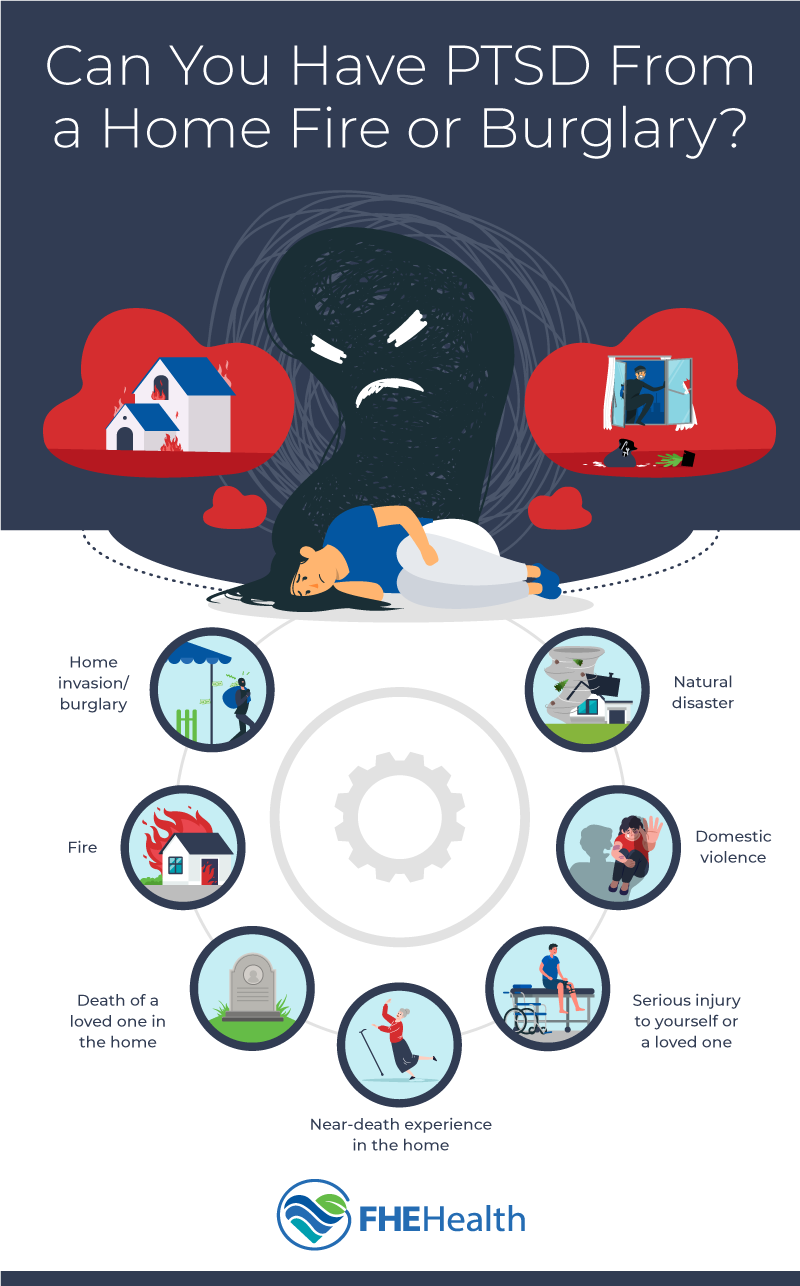
When dangerous, shocking, or scary events occur, the body triggers a series of functions that help protect you until the danger passes. You probably know this as the “fight-or-flight” response. After trauma, people experience a range of symptoms because this response doesn’t fully stop. While most recover with time, those symptoms can persist, potentially indicating post-traumatic stress disorder (PTSD).
PTSD, like many mental health issues, is a condition surrounded by myths, misinformation, and misunderstandings. People often believe that PTSD only affects individuals who have experienced extreme violence and trauma, such as combat veterans or first responders. While it is true that certain populations of people are more prone to developing PTSD, the truth is it can affect anyone at any age.

The source of the trauma doesn’t even need to be particularly violent to lead to PTSD. Personal losses that make us feel vulnerable can also be potential triggers for the condition. This includes events like house fires and burglaries—even if you are not in the home when they occur.
If you have experienced something like this and have been feeling particularly anxious ever since, there is a chance that you have PTSD and should speak with a mental health professional. We’ll discuss how house fires and burglaries can cause PTSD, as well as how to recognize the condition and its symptoms.
The Traumatic Impact of Fires and Burglaries
It’s important to strongly assert one point before discussing anything else: House fires and burglaries are traumatic. Having your home damaged or invaded will cause anyone significant emotional distress.
There is, of course, the pain of losing important objects and sentimental items. Some things may have taken constant saving to afford and the thought of having to buy them again is daunting. But the biggest losses are those items that meant something. Even if grandma’s clock didn’t carry monetary value, the sentimental value is far more important and its loss can be overwhelming.
Along with that pain, our homes are places of comfort, safety, and security. Following events like these, you can lose that sense of security and your home may never truly feel like yours again. Often, there is a constant feeling of dread that it will happen again.
Homes are extensions of ourselves, so it is normal to feel as though house fires and burglaries harm you directly, as well.
Is It PTSD? Symptoms and Signs of Trauma
After a house fire or burglary, it is common to have sleeplessness and signs of depression and anxiety, among other symptoms. This doesn’t necessarily indicate that a person has PTSD. To qualify for a diagnosis, an individual must have symptoms for at least one month and the symptoms must interfere with daily life in some way.
Some of the most typical symptoms of PTSD from a house fire or burglary are flashbacks. If you were in the home when the event occurred, you might find yourself reliving the event over and over, often with physical symptoms like sweating or an increased heart rate.
Traumatic events like these often trigger feelings of guilt or shame. Those who go through these experiences tend to have intrusive thoughts about the events and what could’ve been done to avoid them. Usually, these thoughts are negative and involve self-blame.
Additionally, many people enter a state of hypervigilance. While before the events, you might have been a careful person, the trauma causes you to react to every potential problem. A noise that you might have ignored before could have you searching the house for intruders or a fire hazard. If you see a person driving slowly in your neighborhood, you may immediately assume they’re a burglar.
This comes with changes in reactivity, like being easily startled and feeling tense at all times. You may have difficulty falling asleep. Even if you do fall asleep, nightmares can become far more common.
Potential PTSD Triggers of House Fires and Burglaries
When a person has PTSD, they often have “triggers” that immediately bring back a flood of feelings and memories from the causal event. Ultimately, triggers are so varied and personal that it’s impossible to list them all. However, a few stand out as near-universal.
Following a fire, the smell of smoke or burning wood is an extremely common trigger. Fireplaces, bonfires, and even some candles might bring back the experience. Depending on the severity of the condition and your experiences, even the sight of fire from a lit match or something similar may make you relive the trauma.
Burglary triggers can be a bit more nuanced. Maybe you’re getting dressed and want to accessorize, only to suddenly remember your jewelry was stolen. Certain imagery that you associate with burglars–like backpacks or large bags, ski masks, or hoodies—can elicit symptoms.
Triggers that are common in both sources of PTSD include loud noises, such as bangs or broken glass. News articles, TV shows, or movies that feature these events can also be triggering. Even being in a situation that makes you feel vulnerable, like a roller coaster or a first date may send you right back to the source of your trauma.
Getting Professional Help
Mental health conditions like PTSD can range from difficult to impossible to heal without professional support. Trauma and its lingering effects can impact one’s life in so many different ways that attempting to address PTSD on one’s own is a massive undertaking.
If you’re struggling with some form of trauma or PTSD following a house fire or burglary, seek out some form of counseling and therapy. Because traumas are so personal, you might find that certain forms of professional care are more effective than others.
Cognitive-behavioral therapy (CBT) has been effective at providing symptom management for many people dealing with a range of traumatic experiences. It may help you identify and change the negative thoughts stemming from a particular incident.
Many people find that exposure therapy helps them overcome their triggers, allowing them to regain a sense of control over their lives. In this form of CBT, your counselor will provide gradual, progressive exposure to stimuli and teach you how to conquer them.
There are also simple talk therapies that help you walk through and discuss your trauma, as well as group therapies that may enable you to swap tips and tools with others who have gone through similar experiences.
It all comes down to what works for you.
Coping and Support for PTSD
One of the most important benefits of professional care is that it can support your healing process, by equipping you with the tools and advice you may need to manage PTSD symptoms and move forward after a house fire or burglary.
You may feel uncomfortable discussing the events with friends and family, but just knowing there are people who can help you can be a major relief. Your support system could also involve a pet who makes you feel better or a therapy group that can walk you through the ups and downs.
Beyond your allies, you may also benefit from some coping strategies to employ when symptoms do flare up. Deep breathing may help you focus and calm down after encountering a triggering situation. Grounding techniques, such as counting the objects around you or describing a specific object in detail, may help you stay in the present when a flashback occurs. In the longer term, practices like mindfulness and meditation may enable you to stay calm and connected to yourself and the present moment rather than fixated on the past or future.
Remember that PTSD is an endurance marathon, not a sprint. Our experts have decades of experience treating PTSD. For more information or resources, reach out to us anytime.






